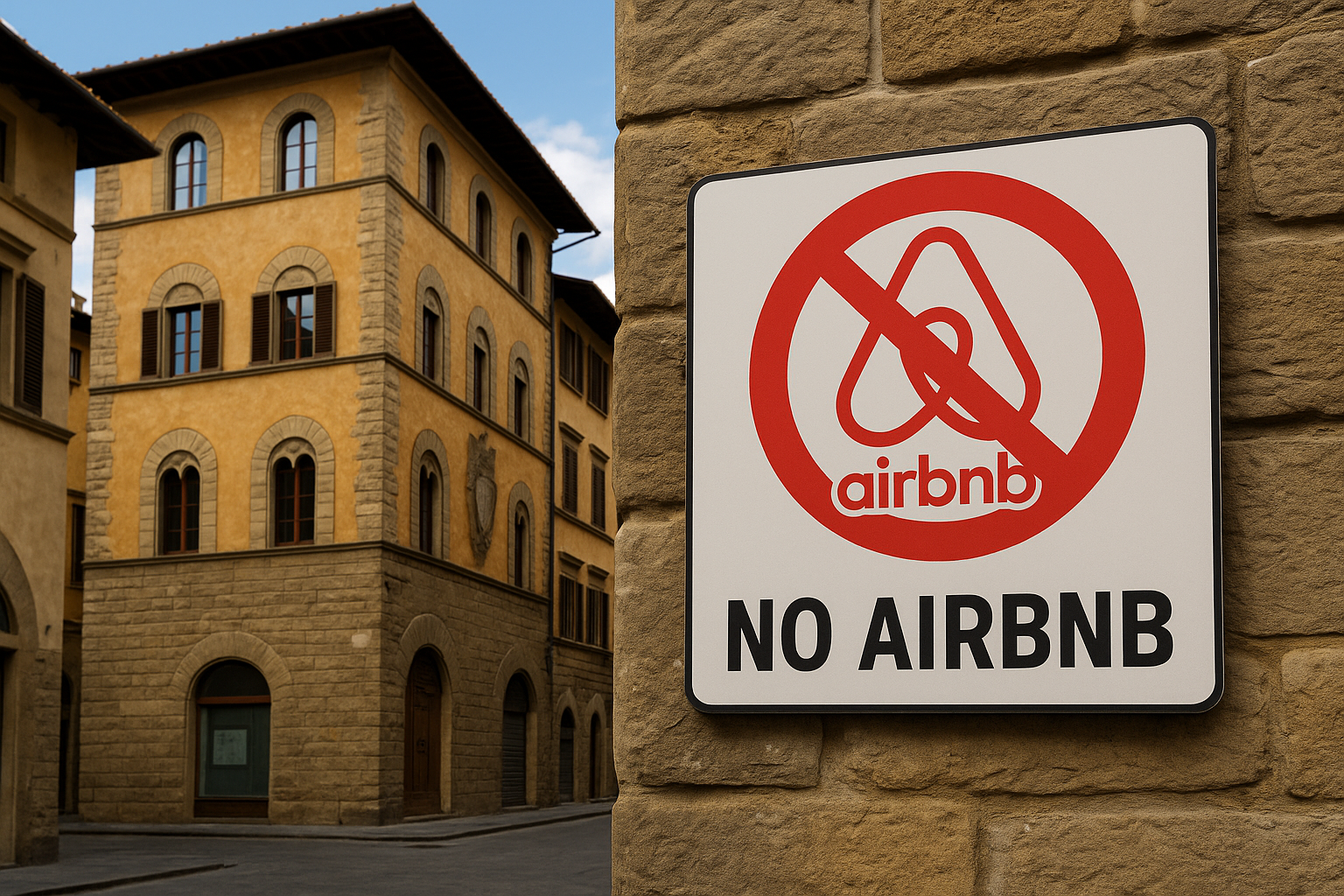Florence Declares Bold Crackdown on Airbnb Rentals to Restore Housing Balance and Protect Historic Soul
In a landmark move to preserve its cultural heritage and address rising housing insecurity, Florence has enacted sweeping regulations targeting short-term vacation rentals like Airbnb. Effective May 31, 2025, the new legislation bans all new tourist accommodations within the city’s UNESCO-protected historic center, while introducing strict permit, safety, and operational rules across the broader metropolitan area.
The Tuscan capital, long revered for its Renaissance art, architecture, and enduring charm, is now setting a powerful precedent for urban preservation and resident-first housing policy in Europe. City officials argue that the rapid proliferation of tourist rentals has hollowed out neighborhoods, inflated housing prices, and compromised Florence’s status as a living city rather than just a tourist exhibit.
A Historic Center Off-Limits to New Tourist Rentals
At the heart of the reform is a complete ban on the opening of new short-term rental properties in Florence’s “centro storico,” the historic center recognized by UNESCO as a World Heritage Site. While existing legally registered rentals are grandfathered in, no new authorizations will be granted within the city’s core.
“This is not a war against tourism, but a necessary regulation to protect our residents, their homes, and the soul of Florence,” said Mayor Dario Nardella, who championed the law. City data shows that over 8,000 properties within Florence were listed on vacation rental platforms in 2024—many of which were formerly long-term homes for locals.
Permit System and Grace Period for Existing Hosts
Under the newly established framework, all short-term rental operators across Florence must now obtain a five-year permit from the municipal authority. Notably, this permit is assigned to the property itself, not the owner, and will lapse if the unit remains unused for tourist rentals for twelve months unless repurposed for long-term leasing.
To ensure a smooth transition, owners who had registered and operated legally in 2024 are exempt from permit requirements until December 31, 2027. However, any transfer of ownership invalidates the existing permit, signaling that properties cannot be sold as “ready-to-rent” investment assets.
Safety, Size, and Hospitality Standards Set
Florence’s regulatory overhaul also sets a new bar for property standards. Each unit must now meet a minimum size of 28 square meters and provide clearly defined, livable spaces for guests, such as bathrooms, kitchens, and sleeping areas.
In addition, tourist accommodations must be equipped with safety infrastructure, including carbon monoxide detectors and one fire extinguisher per 200 square meters. Guest communication protocols are also mandatory—landlords must post multilingual welcome guides, emergency contact information, and waste separation instructions to promote sustainability and civic harmony.
“This is about aligning vacation rentals with professional accommodation standards and upholding our responsibility to both visitors and residents,” stated a spokesperson from Florence’s Tourism and Urban Housing Department.
Key Box Ban and Mandatory National ID Code
In an earlier step that took effect in February 2025, Florence outlawed the use of key lockboxes—a practice once popular for facilitating self-check-ins without host contact. The city argued that key boxes undermine safety, facilitate untraceable guest turnover, and detract from the historic streetscape.
Florence has also reinforced compliance with Italy’s national Codice Identificativo Nazionale (CIN), a mandatory identification number for all vacation rentals. All listings must include the CIN visibly on the property and in any promotional material, from Airbnb to Booking.com. Failure to display the code could lead to fines and criminal penalties, part of Italy’s broader effort to curb tax evasion in the tourism sector.
Landlords Push Back, Legal Challenges Mount
Despite broad municipal support, the crackdown has provoked a wave of opposition from property owners and rental operators. Landlord groups argue that the measures are overly punitive and risk damaging Florence’s tourism economy—particularly during peak summer months when visitor demand surges.
Legal appeals have already been filed with the regional administrative court, with plaintiffs citing violations of private property rights and economic freedom. However, city officials remain resolute.
“The priority is clear: housing must return to the people of Florence,” said City Councillor Sara Funaro. “We cannot allow our historic neighborhoods to become empty shells catering only to tourists.”
A Model for Sustainable Tourism in Italy and Beyond?
Florence’s action arrives amid growing national and European efforts to regulate the short-term rental industry. Venice has recently announced new access rules for day-trippers, Rome is exploring rental caps, and Barcelona and Amsterdam have taken their own steps to curb over-tourism.
Italy’s National Institute of Statistics (ISTAT) reports that between 2010 and 2024, the number of available residential rentals in Florence declined by over 30%, while tourist rental licenses grew by more than 200%. This imbalance has left students, workers, and local families struggling to find affordable housing in the city.
Florence’s ambitious measures now place it at the forefront of the movement to reclaim urban life from unchecked tourism. As cities across Europe grapple with how to remain livable while welcoming millions of visitors annually, the Tuscan capital offers a compelling—if controversial—model for sustainable tourism management.
For more travel news like this, keep reading Global Travel Wire



















